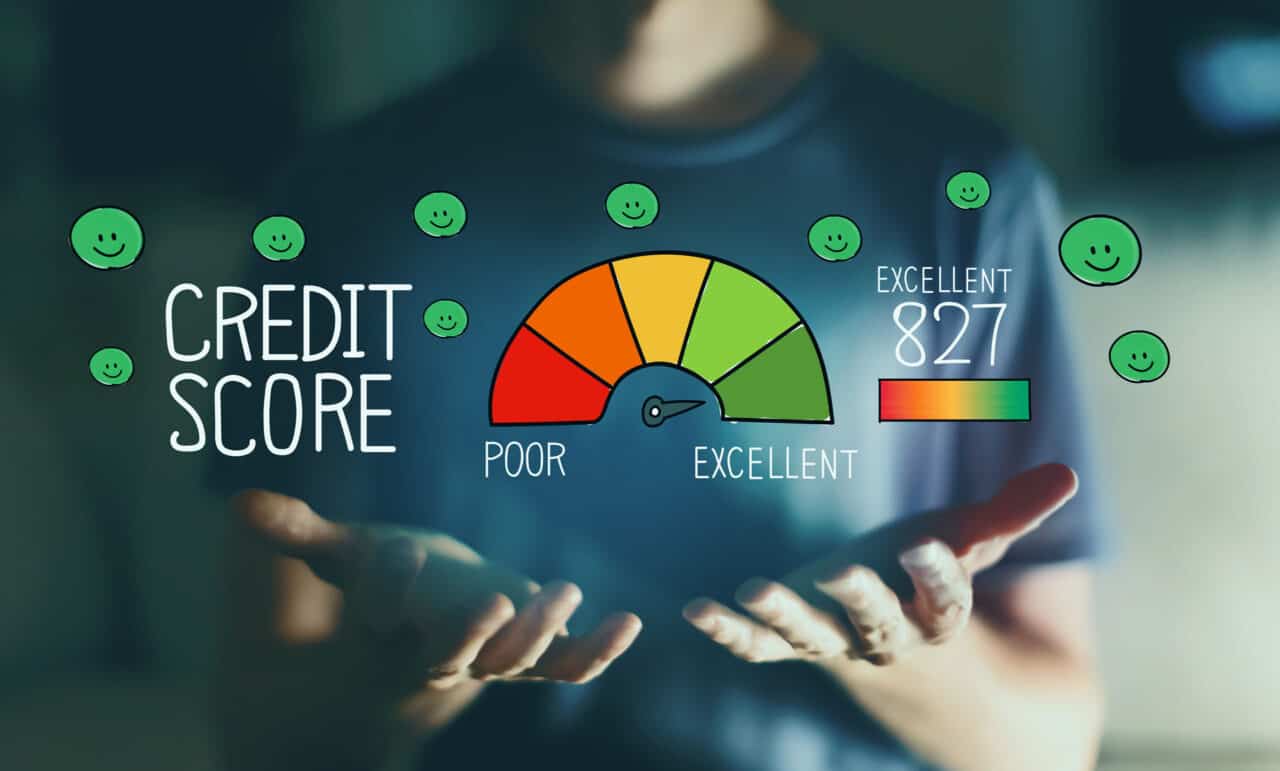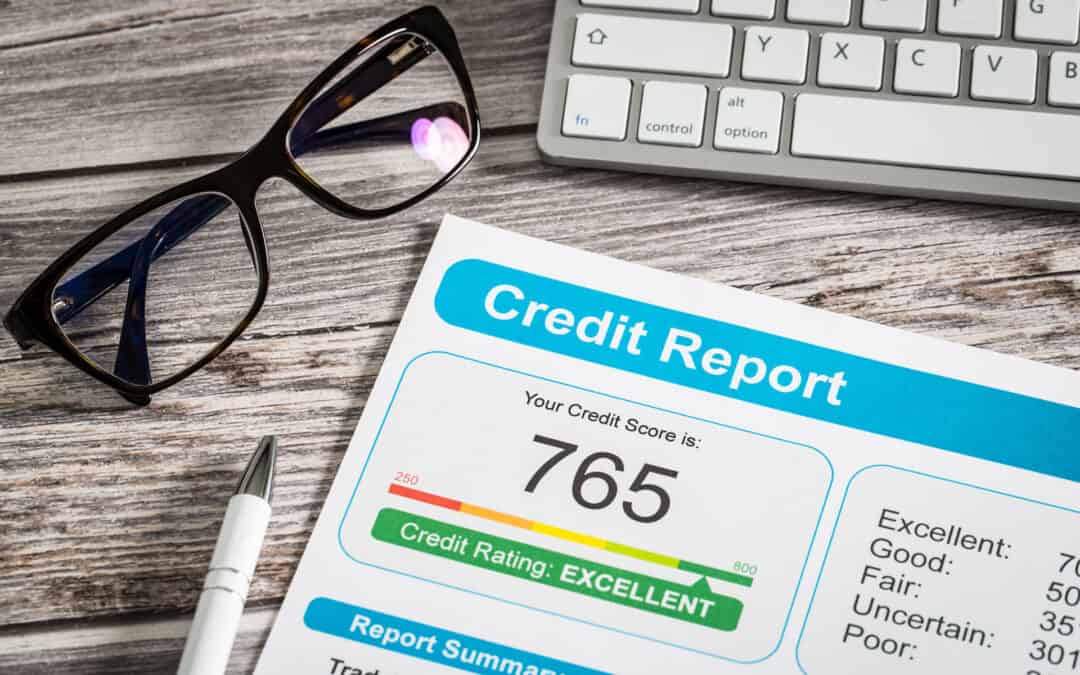Do you know what’s in your credit report and why it matters? You know that credit is an important part of your life, but you may not have looked into everything involved in your credit report.
Mastering this information is essential to managing your finances responsibly and protecting yourself from fraud or identity theft. In this blog post, we’ll demystify the contents of a credit report and why it matters so you can feel confident about staying on top of your financial security.
You will learn what’s in a credit score, how to request credit reports and scores, how to fix reporting errors, and how to place a credit freeze. Let’s dive right into it!
Table of Contents
What’s in a Credit Score?
Your credit score is a crucial number that lenders employ to gauge your creditworthiness, indicating how dependable you are in paying off loans.
With a good credit score, you might be offered better loan deals, rentals, and insurance premiums.
That’s why it’s imperative to keep up with your credit score and improve it.
How to Get Your Credit Score
There are 4 main ways you can find your credit score:
- Check your credit or loan statements.
- Talk to a credit or housing counselor.
- Find a credit score service.
- Buy your score from one of the three major credit reporting agencies: Equifax, Experian, or TransUnion.
You can learn more about each method of obtaining your credit score from the Consumer Financial Protection Bureau (CFPB).
How Your Credit Score Is Calculated
The 3 major credit reporting agencies create credit reports with your history of credit, loans, and other financial information. These credit reports are used to calculate your credit score.
The information from your credit report that affects your score includes:
- Payment history
- Credit utilization
- Length of credit history
- Credit inquiries from new credit applications
- Types of credit accounts (mortgages, car loans, credit cards)

Ways to Improve Your Credit Score
Your credit history directly affects your credit score. If you want to improve your score, here are some things you can do:
- Pay your loans on time.
- Keep your credit usage far below the limit.
- Have a long credit history, keeping quality accounts open as long as possible.
- Make sure your credit report doesn’t have errors.
Learn more with this credit score explainer from USA.gov and about improving your credit score from the CFPB.
How to Get a Copy of Your Credit Report
By law, you can get a free credit report each year from the 3 main credit reporting agencies (CRAs). These agencies include Equifax, Experian, and TransUnion.
AnnualCreditReport.com is the only website authorized by the federal government to issue free annual credit reports from the 3 CRAs.
You can also request your free credit reports by calling 1-877-322-8228 (TTY: 1-800-821-7232) or by filling out the Annual Credit Report request form and mailing it to:
Central Source LLC
P.O. Box 105283
Atlanta, GA 30348-5283
What’s In Your Credit Report
Credit reports show your personal financial information, including:
- Bill payment history
- Loans
- Current debt
- Bankruptcy history
- Lawsuit records
In most cases, your credit report will not include your credit score. You will have to use a free service for your credit score or by using MyFICO.com.
Who Uses Credit Reports
Credit bureaus can sell the information on your credit report to inform the following people or businesses:
- Lenders
- Potential employers
- Insurance companies
- Rental property owners
These businesses may use the information on your credit report to decide if you qualify for the following:
- Credit
- Loans
- Rental property leases
- Employment
- Insurance
Learn more with this credit reports explainer by USA.gov.
Why Check Your Credit Report?
Besides keeping tabs on your credit to appear worthy of lenders, employers, insurance companies, and rental companies, you want to check your report for security reasons.
Thieves opening cards in your name is a common type of fraud. If you catch this early, you can close the accounts and ensure that whoever misuses your info can’t take on new credit in your name.
One of the best ways to spot identity theft is to check your credit report often. Someone could have applied for credit in your name if you spot inquiries from companies you don’t recognize on your credit report.
What If Your Credit Report Request Is Denied?
If a CRA denies your request for a credit report, contact them first to resolve the issue. Contact the CFPB if you cannot resolve your complaint.
Fixing Credit Report Errors
Errors in your credit report can affect your credit score and your ability to get a loan, rent a property, qualify for insurance, or get a job.
Learn more with this fix credit report errors explainer by USA.gov.
Know What Errors to Look For in Your Credit Report
Credit report errors can include the wrong name or address on an account or an incorrect date you made a payment.
You can read more about common credit reporting errors on the CFPB.
Find Out How to Fix Errors on Your Credit Report
If you spot accounts you didn’t open or judgments against you for debts you don’t own, gather any supporting documents and include them with a letter disputing the error. Then send it to the disputing credit reporting agency and the company that provided the incorrect information.
Learn more with this identity theft explainer by USA.gov. You can also get detailed instructions from the CFPB on reporting credit report errors and even file a complaint with the CFPB if your written dispute with the credit reporting bureau does not fix the error.
How to Freeze Your Credit
If you have not used your credit in a while or will not for the foreseeable future, consider freezing your credit with all 4 reporting agencies (the 3 CRAs plus 1). A credit freeze stops the agencies from releasing your information to new creditors without authorization.
While this doesn’t solve the problem of leaking valuable personal data, it does limit the potential impact of an identity theft incident.
There are drawbacks to this plan of action. You will have to thaw the freeze for valid purchases, like buying a new car or home, for each bureau you need to use.
The cost to freeze your credit varies by what state you’re in. Here’s how you can freeze your credit file:
Equifax
- Go to the Equifax freeze page.
- Enter all of your personal information.
- Enter the code verification shown on the screen.
- Accept the terms of use, and hit “Submit” at the bottom of the screen.
- Pay the fee using a credit card on the next screen.
- Write down the “thaw” PIN generated because you’ll need it to undo this process later.
Experian
- Go to the Experian freeze page.
- Enter all of your personal information.
- Accept the terms of use, and hit “Submit” at the bottom of the screen.
- Pay the fee on the next screen.
- Remember to write down your thaw PIN.
Related: Identity Theft Victim Assistance
TransUnion
- Go to the TransUnion freeze page.
- Click on “Register” to the right and create an account.
- Then follow the directions on the screen.
- Pay your fee.
- Write down your thaw PIN.
Innovis
- Go to the Innovis freeze page.
- Click the button for “Request a Security Freeze.”
- Fill out the personal information and click “Submit Request” at the bottom of the page.
You can also submit your request by phone or by mail. By law, freeze requests must be applied in a quick timeframe.
Timeline for freeze requests:
- Online or by phone: agencies must freeze your credit report within one business day.
- By mail: agencies must freeze your credit report within three business days.
Timeline for unfreeze requests:
- Online or by phone: agencies must lift the freeze within one hour.
- By mail: agencies must lift the freeze within three business days.
You can read this credit freeze explainer by USA.gov for more info.
As you will see, with all your security efforts, freezing your credit file should be done with other security measures. Credit freezing alone isn’t enough, as noted by Consumer Reports. There are other forms of identity theft out there.
What’s In Your Credit Report Conclusion
You can keep your credit safe. Take the time to do so to secure your financial future.
These steps are relatively easy. And they significantly reduce the risk of falling victim to credit card fraud. Being vigilant about security is essential at a time of increasing fraud risk. Get started today and take steps to protect your credit history and your identity.
To read more about credit reports and scores, check out USA.gov credit explainer page.

